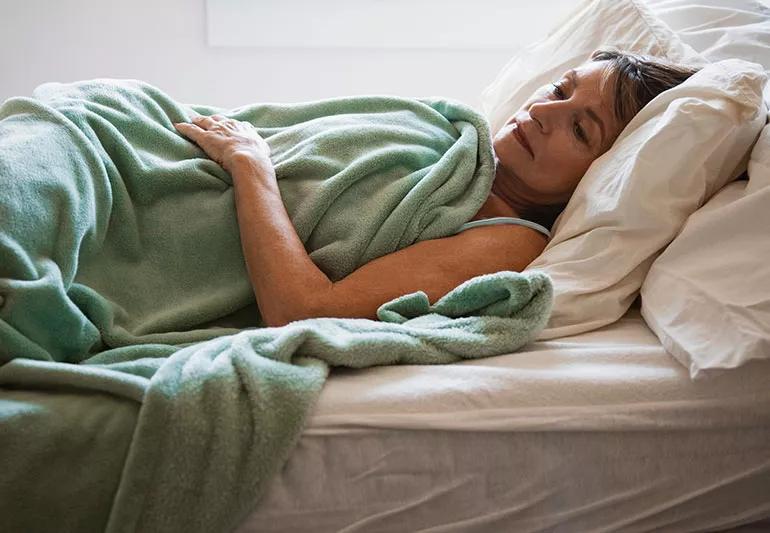The short answer from a cardiovascular researcher

Image content: This image is available to view online.
View image online (https://assets.clevelandclinic.org/transform/1855bf1c-88e2-4744-b5e9-1c85037d5019/aFib-85471703-770x533-1_jpg)
Person laying in bed looking concerned
A: It’s not uncommon for atrial fibrillation (AFib) to occur at night. The nerves that control your heart rate typically are in sleep mode, and that’s when your resting heart rate drops. Under these conditions, pacemaker activity from areas other than the normal pacemaker in the heart can trigger the onset of AFib.
Advertisement
Cleveland Clinic is a non-profit academic medical center. Advertising on our site helps support our mission. We do not endorse non-Cleveland Clinic products or services. Policy
In addition, many patients with AFib have an underlying issue of obstructive or central sleep apnea. If you are frequently sleepy during the daytime, that is especially likely to be the case. If you suffer from AFib, sleep apnea can disrupt the heart’s rhythms. This is a dangerous combination.
To help treat sleep apnea, your doctor may recommend continuous positive airway pressure (CPAP) or other devices that may help to reduce the frequency and burden of AFib.
— Researcher David Van Wagoner, PhD
Advertisement

Sign up for our Health Essentials emails for expert guidance on nutrition, fitness, sleep, skin care and more.
Learn more about our editorial process.
Advertisement
The Short Answer from a cardiologist
Ignoring the warning signs could put you at risk for serious health issues
Making healthy lifestyle changes ahead of surgery can help you avoid AFib after
Mouth taping isn’t a recommended treatment for sleep apnea or snoring
Here’s what to know from a sleep medicine specialist
This connection is yet another reason to seek help for OSA
Sleeping disorder may increase danger of cardiac event
Heroic snoring can be associated with obstructive sleep apnea
Type 2 diabetes isn’t inevitable with these dietary changes
Applying a hot or cold compress can help with pain
Pump up your iron intake with foods like tuna, tofu and turkey